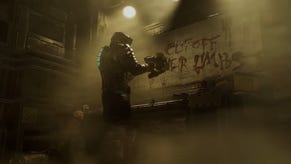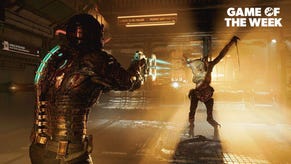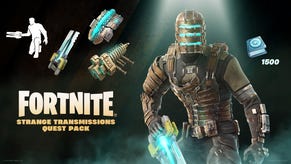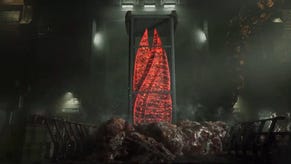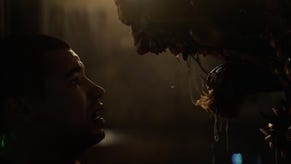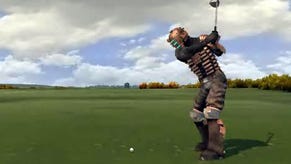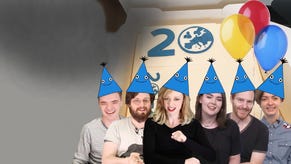Dead Space
Mostly armless.
This doesn't speak very highly of the game's pace or balance, and it's this area that renders Dead Space less impressive than it first appears. You spend a huge chunk of the story running backwards and forwards across the Ishimura, fixing a series of core systems at the behest of Kendra and Hammond. Each time you fix one element, they pop up to tell you something else is malfunctioning or missing. It gets to the point where you half expect them to ask you to find some toner for the photocopier and fetch them a sandwich from the shop. Each maintenance job takes the form of a fairly basic puzzle, where the solution always relies on Stasis, Kinesis or a combination of the two, with the treks in between punctuated by scripted monster attacks. There are certainly moments that make you jump, but the game struggles to maintain the pervasive atmosphere of dread so acutely captured in the opening section.
It turns what should have been a nail-biting fight for survival into a wearying series of petty chores, forcing the gameplay into a predictable routine for the first two-thirds of its playing time. As far as horror goes, nothing kills the mood faster than predictability and when you have to include dialogue for your characters commenting on the seemingly fruitless repetition of what they're doing, that's usually a sign that the pace of a game needs closer attention.
It doesn't help that many of Dead Space's features feel overly familiar from other, broadly similar, titles, and the Resident Evil 4 controls are just one of the borrowed elements boldly on display. There are automated stores where you can turn schematics into new weapons, stock up on ammo and health, sell unwanted items for cash and store your inventory overflow in a virtual safe, not unlike the storage chests in Capcom's classic. The Kinesis power is Half-Life 2's gravity gun in all but name, while the slowdown effect of Stasis echoes the temporal monkey business of games like TimeShift.
Back-story is dished out via text, audio and video logs left lying around, a narrative method which can't help but recall Doom III and BioShock. The mangled monsters could have slithered out of Quake, and even the zero gravity sections owe some small debt to the magnetic puzzles in Prey. It's a grab bag of existing concepts, a Greatest Hits of horror/sci-fi videogaming, and while the end result is never entirely disappointing, it's a shame that none of the wonderfully realised environmental elements - vacuums and zero gravity in particular - are ever used to elevate the rote gameplay beyond surface details.
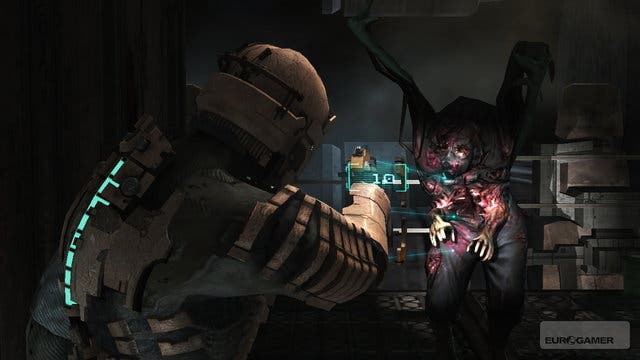
Having come up with a stunning game engine, it also seems that EA couldn't come up with something more original to populate it. The concept of exploring alien-infested spaceships is hardwired into gaming DNA, and Dead Space relies so heavily on established survival horror rhythms that experienced players will be able to anticipate most scares and revelations before they arrive. That it all builds to a climax that is both narratively ridiculous and predictably videogamey (clue: giant boss monster with obvious weak spots) merely strengthens the lingering whiff of missed potential.
Isaac himself proves to be a fairly pointless lead character, too, unlikely to inspire much in the way of empathy or interest. With only two brief glimpses of his face bookending the story, and absolutely no dialogue, it's hard to invest in his search for his lost girlfriend, especially since the game neglects to develop this element in any meaningful way until its rather inept pay-off at the end. Gordon Freeman can get away with being a mute witness to apocalyptic events because we've viewing events through his eyes, and because he's not required to convey any emotional storytelling. Isaac, by comparison, acts like an emotionless automaton even when faced with the most horrific sights and the human factor - always a key in driving a horror story - suffers as a result.
None of these criticisms will detract from your enjoyment, provided all you want from a game is the opportunity to repeatedly turn evil monsters into red mush in gorgeous HD detail. Dead Space easily delivers on that promise, but fails to turn its polished production values into something truly memorable over the long haul.

